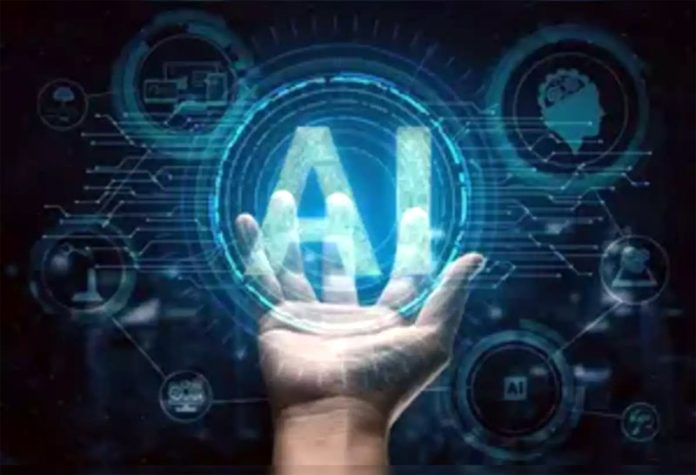NEW DELHI, Dec 28 : Artificial intelligence (AI) transitioned from a temporary trend to a widespread reality, gaining traction across industries due to its potential to enhance efficiency, generate revenue and create entirely new roles, yet concerns around its use and impact on jobs remained.
Gone are the days when it was merely a buzzword; AI has now become an integral part of business strategy across various sectors. But its full impact on jobs is little known and so is the issue of intellectual property, data ownership and its privacy implications, and liability – who is liable if an accident or mishap occurs due to the use of AI.
As technology becomes increasingly human-like and pervasive, organisations are now striving to unlock business value through innovative methods to engage customers and employees, enhance operational efficiencies, and generate new revenue streams, Wipro CIO Anup Purohit said.
“We are working towards a future where AI is integrated seamlessly into everyday operations beyond the honeymoon period and into a mature phase,” he said in an interaction with PTI.
“This growth isn’t confined to technology firms; conventional sectors like banking, finance, and healthcare are also progressively integrating AI to improve operational efficiency and boost customer engagement.
“AI is no longer the flavour of the season but is now the reality at scale. It is gaining momentum across all business domains and sectors. Even those that were traditionally considered laggards like BFSI or healthcare are looking forward to embracing AI.
“CIOs today are shifting their approach away from POC to executing initiatives at scale … to turn the GenAI ‘trend’ into business value by solving real business problems and cutting out the noise while managing costs,” Purohit said.
However, Indian enterprises will need to scale AI by expanding the gamut beyond basic virtual assistants and predictive analytics to a combination of AI-tech-based scalable use cases, according to nasscom.
“With the global AI market valued at approximately USD 235 billion and projected to grow to over USD 631 billion by 2028, AI is redefining industries and economies. The possibilities seem endless, from predictive analytics in agriculture to personalised healthcare solutions. In addition, emerging technologies such as quantum computing and federated learning are poised to redefine the AI landscape and open new frontiers,” Tech Mahindra COO Atul Soneja said.
*Agentic AI: The new frontier of Autonomous Intelligence
The futuristic movies where technology takes over human tasks are set to become a reality in 2025, as an increasing number of enterprises adopt agentic AI to handle mundane and repetitive jobs.
Arun Parameswaran, MD, Sales, Salesforce India, believes 2025 will mark the true dawn of agentic AI – a new era where AI systems move beyond being reactive assistants to becoming proactive, autonomous agents capable of transforming customer engagement, business efficiency, and decision-making.
“We will witness AI agents working collaboratively, transforming productivity and redefining problem-solving at an unprecedented scale. The future will not just be about using AI; it will be about creating and customizing agents that collaborate to understand and execute strategic tasks and decisions, both in personal and business contexts,” he said.
AI agents will significantly enhance business processes by improving efficiency and customer service, Purohit said.
*Sky’s the Limit: Cloud Computing soars alongside AI
In addition to AI, cloud computing continues to gain traction. Major players like Amazon Web Services and Microsoft Azure are expanding their footprints in India, catering to the increasing demand for scalable and flexible IT solutions. This shift towards cloud services is enabling businesses to innovate rapidly and respond more effectively to market changes.
According to research firm IDC, the overall Indian public cloud services market is expected to reach USD 24.2 billion by 2028, growing at a CAGR of 23.8 per cent for 2023-28.
“The integration of AI with cloud services will allow companies to quickly scale their AI models, manage extensive datasets in real-time, and gain insights for smarter decision-making.
“The combination of AI and cloud services will help businesses innovate more swiftly, respond to market changes with greater flexibility, and maintain a long-term competitive edge,” Purohit said.
*Adapt or fade away: Upskilling essential amid AI boom
The rapid evolution of technology is also reshaping the job landscape and demand for skilled talent is set to soar as AI continues to redefine job roles across sectors.
“With the rapid deployment of AI-led solutions, the industry will soon witness a demand-supply gap of skilled talent.
Future professionals will need to build deeper business and communications skills, such as listening, problem-solving, as well as specific domain expertise to leverage AI to solve complex business problems,” Purohit said.
Future professionals will need a robust blend of technical expertise and soft skills, including adaptability, emotional intelligence, and strong communication abilities.
As businesses increasingly rely on AI-driven solutions, there will be a critical need for individuals who can bridge the gap between technology and business strategy.
“AI/Gen AI will impact knowledge work (white-collar work) in ways that no prior technology has, and this is likely to cause significant and continuous shifts in knowledge work (the what) and ways of working (the how) for all businesses. All businesses will need to define work next-practices continually to remain competitive,” TCS CTO Harrick Vin said in an interaction with PTI.
Future roles will require greater levels of critical thinking, design, strategic goal setting, and creative problem-solving skills, he said.
“This would mean different things in the context of various types of work. For example, for the domain of software DevOps, teams will start to de-prioritise basic scripting skills for infrastructure provisioning and configuration, low-level monitoring configurations and metrics tracking, and test automation, among others. Instead, they will focus more on product requirements analysis, definition of acceptance criteria, software and architectural design,” Vin said.
For professionals entering the tech industry in 2025, he listed three primary and most needed skills’ — Learning to learn; Critical thinking/analysis; and Techno-functional skills for applying computational thinking and methods to solve complex domain problems. (PTI)
Trending Now
E-Paper


